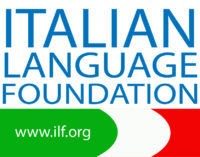By Gabriel Harmetz
While born and bred in Manhattan, I spent all my summers in Trieste. It is a beautiful city not known to most tourists, since it is not well connected to the rest of Italy by railways.
Trieste is located in the Northeastern corner of Italy, a 20 minute car ride from Slovenia.
Even though it is a medium-sized city with 200,000 inhabitants, it reminds me a bit of Manhattan, in that its mentality has been influenced by several cultures/nations: Balkan, Austro-Hungarian, Venetian, Greek and Jewish, which ended up blending into a great mix (Austrian organization and Italian warmth!)
Trieste’s main symbol is the “bora”, a wind so strong that in my grandmother’s times women would have weights sewn into the hems of their skirts, and there were thick ropes attached to buildings and poles that people would grab to avoid being blown away.
In winter, the bora makes the waves crash against the pier, where they sometimes freeze into fairylike shapes.


The frigid and dark winters contrast with its warm and pleasurable summers, thanks to the fact that Trieste is one of the very few cities that boast beach clubs and numerous hidden coves that people can take advantage of for a quick swim during their lunch break.
Kids around my age tend to gravitate towards the Barcola promenade, which is free and always crowded.

People say that the row of hedges separating that promenade from the highway was planted because the sight of beautiful girls walking in their bikinis was causing way too many car accidents!
Best Hotels: Savoia Excelsior, Duchi d’Aosta, or James Joyce.
Historic Cafes: caffè degli Specchi, San Marco, and Tommaseo.
Best Gelato: Gelato Marco
Biography:
I am a senior (12th gr) at Ramaz Upper School in Manhattan and I am fully bilingual (English/Italian).
I was born in NYC, but my mom is from Venice and always spoke only Italian with me, while my grandma would send me frequent packages of Italian books, comic books and DVDs , and I always attended Italian summer camps.
I am an extrovert and love spending time with my (numerous!!) friends, playing basketball, and playing drums and piano. I make perfect pasta al dente!

 due opere realizzate a graffito, una di Giorgio Bartocci, e una di Linea Piatta. Quando siamo arrivati, una coppia stava uscendo da casa sua, situata proprio lì davanti. Essendo persone che abitano così vicino all’opera, le loro opinioni sono molto importanti per capire come i graffiti e l’arte impattino sugli spazi pubblici. A loro piaceva l’opera originale, ma non i graffiti che le erano stati fatti sopra. Se avessero potuto cambiare qualcosa, avrebbero rimosso i graffiti gialli che rovinano l’opera originale. Dopo questa conversazione, ci siamo resi conto che esiste una responsabilità per gli artisti: la loro arte può migliorare uno spazio e contribuire alla bellezza del luogo, ma anche rovinarlo.
due opere realizzate a graffito, una di Giorgio Bartocci, e una di Linea Piatta. Quando siamo arrivati, una coppia stava uscendo da casa sua, situata proprio lì davanti. Essendo persone che abitano così vicino all’opera, le loro opinioni sono molto importanti per capire come i graffiti e l’arte impattino sugli spazi pubblici. A loro piaceva l’opera originale, ma non i graffiti che le erano stati fatti sopra. Se avessero potuto cambiare qualcosa, avrebbero rimosso i graffiti gialli che rovinano l’opera originale. Dopo questa conversazione, ci siamo resi conto che esiste una responsabilità per gli artisti: la loro arte può migliorare uno spazio e contribuire alla bellezza del luogo, ma anche rovinarlo.








 Italia per studiare con una varietà di istruttori rinomati. Sotto la loro guida ho approfondito la mia comprensione della storia e del significato degli stili di danza italiani e allo stesso tempo ho imparato a conoscermi meglio. Questa esperienza mi ha ispirato a scrivere due libri che insieme alla mia tesi approfondiscono le complessità della danza italiana: La danza: conflitto, passione e cura; e Alla ricerca della danza italiana. Questi libri sono utilizzati come risorse educative da ballerini professionisti e appassionati di danza interessati ad approfondire le radici culturali della danza italiana. A livello personale avevo bisogno per sentirmi rappresentata di vedere dei libri sulla danza italiana.
Italia per studiare con una varietà di istruttori rinomati. Sotto la loro guida ho approfondito la mia comprensione della storia e del significato degli stili di danza italiani e allo stesso tempo ho imparato a conoscermi meglio. Questa esperienza mi ha ispirato a scrivere due libri che insieme alla mia tesi approfondiscono le complessità della danza italiana: La danza: conflitto, passione e cura; e Alla ricerca della danza italiana. Questi libri sono utilizzati come risorse educative da ballerini professionisti e appassionati di danza interessati ad approfondire le radici culturali della danza italiana. A livello personale avevo bisogno per sentirmi rappresentata di vedere dei libri sulla danza italiana.
